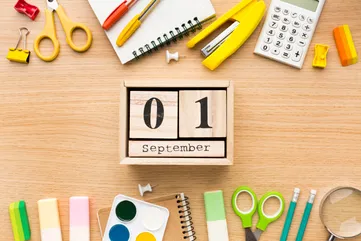Life Skills Development
Life skills development is the process of building practical abilities like cooking, budgeting, time management, and self-care that teens need for successful independent adult living.
You're not alone
If your teen can solve calculus problems but can't operate the washing machine, you're not alone. Research shows that anxiety and depression rates spike in college partly due to lack of basic life skills. Many parents, wanting to reduce teen stress, handle practical tasks themselves. While well-intentioned, this creates young adults who feel incompetent at basic adulting. The solution is gradual skill-building that doesn't overwhelm.
What it looks like day to day
Student
Your teen heads to college knowing five AP subjects but calls you panicking about how to address an envelope or unclog a sink.
Parent
You realize you've been doing your teen's laundry for years to save time, but now they're 17 and have no idea how to sort colors from whites.
Tiny steps to try
- 1
One skill per month
Choose one life skill monthly. December is laundry. January is basic cooking. Slow and steady builds competence.
- 2
Shadow then swap
First time, teen watches you. Second time, you do it together. Third time, they lead while you supervise. Fourth time, independence.
- 3
Life skills Sunday
Dedicate Sunday afternoons to practical skills. Make it fun with music and snacks while learning together.
- 4
Real responsibility
Give your teen actual ownership of something, like keeping bathroom supplies stocked. Real consequences teach better than practice.
- 5
Mistake celebration
When they shrink a sweater or burn dinner, celebrate the learning. Mistakes in safe environments build resilience.
Why life skills matter more than ever
Modern teens often reach college without basic life skills that previous generations learned naturally. Between academic pressure and digital childhoods, opportunities to develop practical skills have diminished.
Essential life skills teens need:
• Laundry and basic clothing care
• Simple meal planning and cooking
• Budget basics and money management
• Time management without parental reminders
• Making appointments and phone calls
• Basic home maintenance and cleaning
Without these skills, young adults struggle with anxiety and overwhelm when facing independence. Building skills gradually during teen years prevents crisis learning later.
Ready to help your teen thrive?
Get personalized 1-on-1 coaching to build better habits and boost grades. Join 10,000+ families who trust Coachbit.
Frequently Asked Questions
When should I start teaching life skills?
Earlier than you think. Elementary schoolers can sort laundry and make sandwiches. Middle schoolers can learn basic budgeting and cooking. High schoolers should manage most daily living tasks independently. Start where your teen is now. It's never too late, but gradual building prevents overwhelm. College-bound seniors need intensive life skills practice.
How do I teach life skills when we're already overwhelmed with academics?
Integrate life skills into existing routines rather than adding separate lessons. Cooking dinner together teaches meal planning. Grocery shopping teaches budgeting. Making their own doctor appointment teaches communication skills. These aren't additions to your schedule but shifts in who does what. Academic success without life skills creates anxious, dependent young adults.
Related Terms
Related Articles

4 Healthy Habits To Set Your Teen Up For Life
Set your teen up for life with 4 healthy habits. Quality sleep, digital wellbeing, balanced scheduling, and stress management for a successful future!
Read article
Finding Order in the Chaos – Setting up Calendars for Kids
Creating a calendar and daily schedule for kids can be beneficial to manage school, homework, extracurriculars and hobbies. Color-coding and time-blocking are helpful tools for kids with ADHD.
Read article
